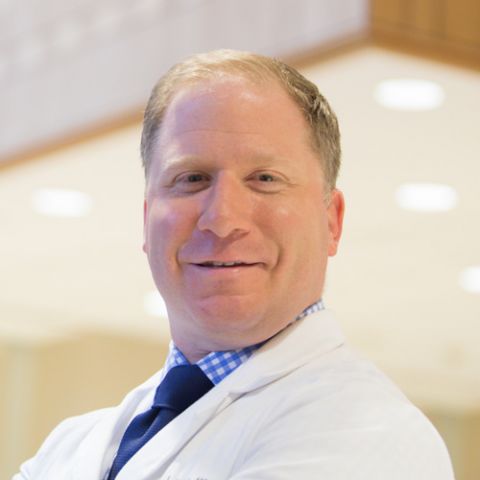People who learn they have cancer might assume they’ll be undergoing a major surgery in the near future — but for some patients with rectal cancer, that might not be necessary.
Large, randomized studies of patients with bulky rectal cancer compared the two different approaches to treating the disease, explains Steven Nurkin, MD, MS, FACS, Chief of Colorectal Surgery at Roswell Park Comprehensive Cancer Center. One group of patients had surgery first, and the other group had chemotherapy and radiation first, followed by surgery. “Those who had up-front chemotherapy and radiation had a lower chance of the cancer coming back, a lower chance of needing a permanent colostomy bag and some studies showed an improvement in the cancer cure rate,” Dr. Nurkin says. “What we have found more recently, is when we give chemotherapy and radiation first, sometimes the tumor responds completely and disappears, and in those situations, we may be able offer ‘watch and wait,’ and avoid surgery altogether.”
Rectal cancer surgery is extremely complicated and is associated with significant side effects. This is due in part to the location of the rectum, the “last couple of inches” of the gastrointestinal tract. This makes the surgery more difficult and the benefits of performing surgery suboptimal when considering the need for a possible colostomy and other quality of life issues, explains Dr. Nurkin. “The rectum is located in a very narrow, confined, deep, bony pelvis. There are a lot of important surrounding structures, including the bladder and prostate in men, and the uterus and vagina in females. There are important nerves that affect stool, urinary and sexual function, as well as major blood vessels that feed the pelvis and lower extremities. Therefore, removing the entire cancer, while trying to avoid these structures can be extremely difficult, and be associated with side effects and complications."
For patients whose tumor does not disappear after chemotherapy and radiation as the initial course of treatment, they still have better outcome rates and cleaner tumor margins or borders because their tumor has reduced in size and stage, he says. As many as one-third of rectal cancer patients or more might be eligible for this “watchful waiting” treatment. Roswell Park has had more than 100 patients utilize this approach in the 10 years it has been studied, Dr. Nurkin says.
Why Roswell Park for treating colorectal cancer?
Find out what sets Roswell Park apart in diagnosing and treating colorectal cancer.
Learn MoreSurgery might not be needed after initial treatment
A “watchful waiting” course of treatment still requires a colonoscopy and an initial biopsy of the tumor to confirm it is cancer, followed by MRI and CT scans to determine the size of the tumor and its stage. “If they have a locally advanced cancer, the standard of care is chemotherapy and radiation and then the patient is reassessed, a process that can take up to six months,” Dr. Nurkin says. “When the patient comes back, we repeat the endoscopy and MRI, and in those patients who have had a 'complete clinical response,' meaning the tumor is gone, we’ll offer 'watch and wait.' If the tumor does not disappear, the surgery required will often be minimally invasive and can be done with a robotic procedure.”
A treatment plan that’s best for you and your cancer
Still, he understands that some patients might be nervous about delaying surgery, even if they’re afraid of going under the knife. “It’s on us as physicians to educate patients with regard to the latest treatment and research. Going to see a surgeon doesn’t automatically mean you’re going to have surgery. When someone is diagnosed with rectal cancer, we will often start with chemotherapy and radiation for about five and a half weeks. After that, sometimes we give additional chemotherapy to optimize the response for three to four months. That’s a lot for a patient to handle. It’s tough to hear that we’re going to leave the cancer inside of you for six months, but on the other side of those six months, you may not just avoid surgery but you may be cured of your cancer.”
Dr. Nurkin stresses that not all patients will be eligible for non-surgical treatment up-front and that all cases are reviewed by Roswell Park’s tumor board. Decisions will be made based on what’s in the best interest of the patient.
“Coming to a place like Roswell Park, where we have a multidisciplinary approach to treatment, we’re really putting the patient first and what’s best for them” he says. “Quality of life gets weighed in when discussing treatment options with the patient and their family, and their personal goals are always considered. There are some patients who are 30 years old with rectal cancer and some who are 90 years old. We don’t have to treat them the same way, nor should we. For some patients, it's about cure and 'more days', for others, its about 'better days' and preserving quality of life. Tailoring or personalizing their care, is our priority, and 'watch and wait' is another game-changing option."



